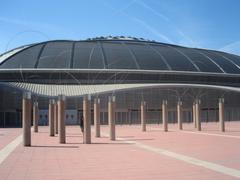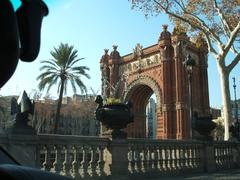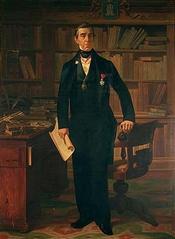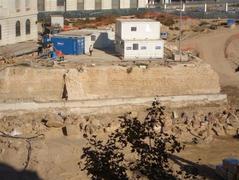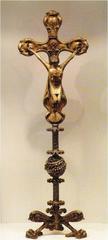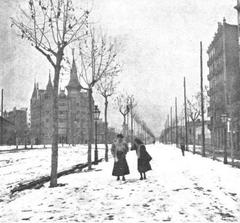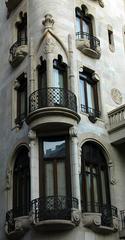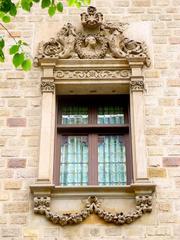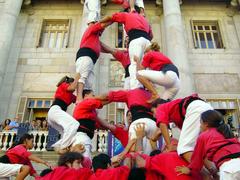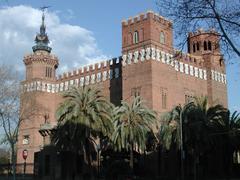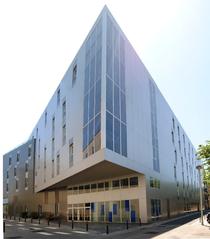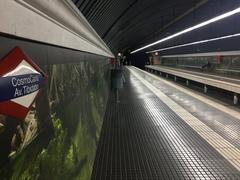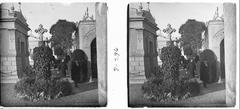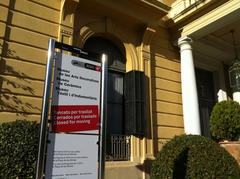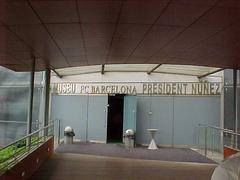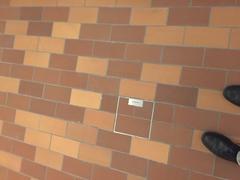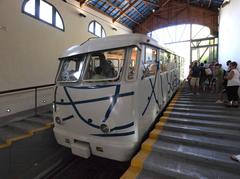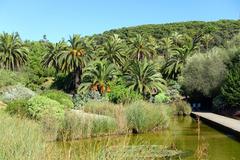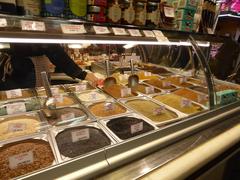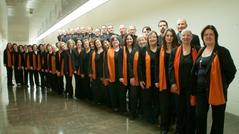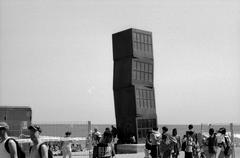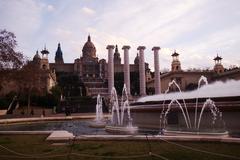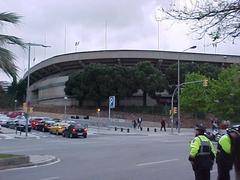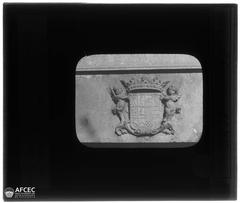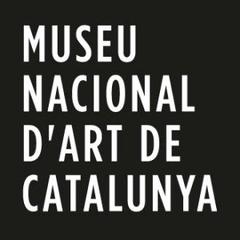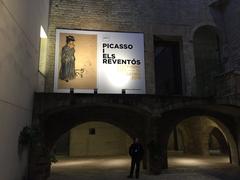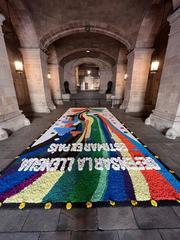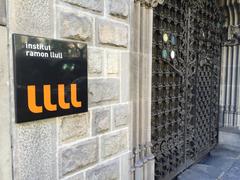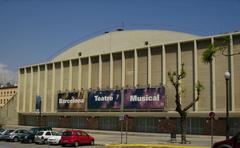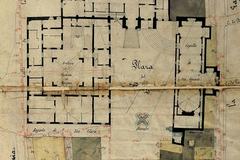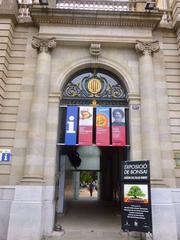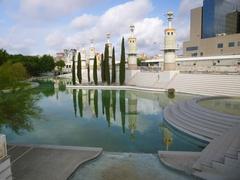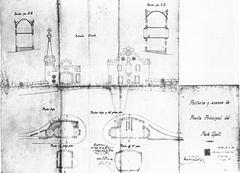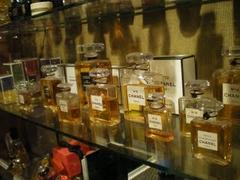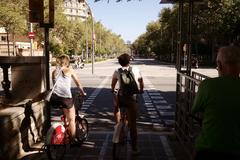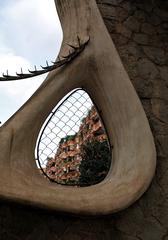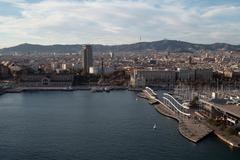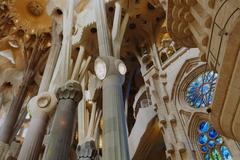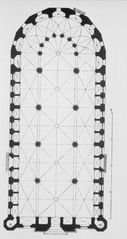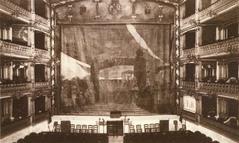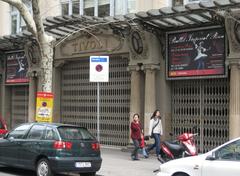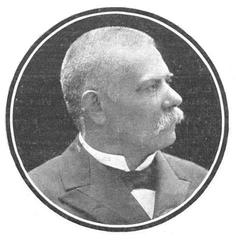El Treball Barcelona: Visiting Hours, Tickets, and Comprehensive Tourist Guide
Date: 03/07/2025
Introduction to El Treball: Barcelona’s Living Industrial Heritage
El Treball, translating to “The Work” in Catalan, is not just a district but a vibrant concept and living landscape in Barcelona that embodies the city’s industrial and labor legacy. Spanning neighborhoods like Poblenou and Sant Andreu, El Treball is central to understanding Barcelona’s transformation during the 19th and early 20th centuries, when textile manufacturing, engineering, and social activism shaped the city’s social and architectural fabric. Rather than a single monument, El Treball comprises a network of historic sites, modernist architecture, public art, and annual events rooted in working-class tradition. From museums and monuments to street art tours and sustainable tourism initiatives, El Treball offers visitors a meaningful way to engage with Barcelona’s past and present. (Ajuntament de Barcelona; Official Barcelona Tourism; Barcelona Turisme; Barcelona Sustainable Tourism)
Contents
- Introduction
- Historical Background
- Urban and Architectural Significance
- Social Movements and Cultural Impact
- Essential Sites and Experiences
- Industrial Heritage
- Monuments and Murals
- Museums and Cultural Centers
- Cultural Traditions and Local Life
- Practical Visitor Information
- Tickets and Visiting Hours
- Guided Tours and Special Events
- Accessibility and Transportation
- Nearby Attractions
- Sustainable Tourism in El Treball
- Visual and Interactive Resources
- FAQs
- Conclusion and Recommendations
- Sources and Further Reading
Historical Background of El Treball
El Treball is interwoven with Barcelona’s industrialization, particularly between the mid-19th and early 20th centuries. Rapid economic growth turned the city into a powerhouse for textile and engineering industries, attracting waves of workers from Catalonia and beyond. This period saw the rise of a strong working class, driving major social mobilizations such as Spain’s first general strike in 1854 and a tradition of collective action that left a deep imprint on Barcelona’s identity. (Ajuntament de Barcelona; Museu d’Història de Barcelona (MUHBA))
Urban and Architectural Significance
The industrial boom prompted the expansion of Barcelona beyond its medieval walls, most notably with Ildefons Cerdà’s Eixample plan in 1859—an urban grid designed to promote health and accessibility for a growing working population. Modernist architects like Antoni Gaudí and Lluís Domènech i Montaner created iconic buildings, commissioned by industrialists whose fortunes were built on labor. Factories, workers’ housing, and social clubs in areas such as Poblenou, Sant Andreu, and Sants remain as living testaments to this era, while urban renewal has adapted many sites for new cultural and technological uses. (Official Barcelona Tourism)
Social Movements and Cultural Impact
El Treball is a symbol of Barcelona’s enduring tradition of labor activism, commemorated annually during International Workers’ Day and through numerous monuments, murals, and public art. The city’s neighborhoods are renowned for their strong community spirit, with labor unions and grassroots organizations advocating for workers’ rights and social progress—a legacy that continues to shape contemporary Barcelona. (Barcelona Turisme)
Essential Sites and Experiences in El Treball
Industrial Heritage
- Poblenou (“Catalan Manchester”): Explore converted factories like the Can Framis Museum, open Tuesday to Sunday (11:00–19:00, €7 entry, discounts available), and Palo Alto Market. (Can Framis Museum Official Site)
- Colònia Güell: A unique textile colony with Gaudí’s crypt and preserved workers’ homes, open daily 10:00–18:00 (€8 entry, guided tours by reservation). (Colònia Güell Official)
- Sant Andreu and Sants: Neighborhoods with active markets and social clubs reflecting their industrial roots.
Monuments and Murals
- Monument al Treball (Parc de la Ciutadella): A striking monument honoring the city’s workers, freely accessible during park hours (8:00–21:00).
- Street Art: Murals in El Raval and Poblenou celebrate labor movements; guided street art tours (approx. €20/person) provide deeper insight.
Museums and Cultural Centers
- MUHBA: The Museu d’Història de Barcelona offers exhibitions on the city’s industrial and labor history. Open Tuesday to Sunday (10:00–19:00; €5 entry, free first Sunday monthly). (MUHBA Official)
- Can Batlló: A former factory turned community innovation hub, hosting workshops and events on social change. (Can Batlló Community)
Cultural Traditions and Local Life
Barcelona’s working-class heritage is celebrated through food, festivals, and daily life. Enjoy traditional Catalan dishes (pa amb tomàquet, botifarra) at local eateries and participate in festivals like Festa Major de Sants and La Mercè, which blend history, community, music, and communal meals. (Catalan Cuisine Official; La Mercè Festival)
Practical Visitor Information
Tickets and Visiting Hours
- Can Framis Museum: Tue–Sun, 11:00–19:00; €7.
- Colònia Güell: Daily, 10:00–18:00; €8; guided tours by appointment.
- MUHBA: Tue–Sun, 10:00–19:00; €5/frees on first Sundays monthly.
- Monument al Treball: Open park hours; free.
Guided Tours and Special Events
- Walking tours in industrial neighborhoods (Poblenou, Sants, El Raval) are available in multiple languages (€15–€25).
- Annual events like International Workers’ Day feature rallies and community activities.
Accessibility and Transportation
- Barcelona’s metro, bus, and tram networks ensure convenient access to El Treball sites. The Barcelona Card offers unlimited travel and attraction discounts.
- Most sites are wheelchair accessible; tourist offices provide maps and accessibility information.
Nearby Attractions
- Enhance your visit with stops at the Gothic Quarter, Parc de la Ciutadella, and Eixample’s modernist architecture.
Sustainable Tourism in El Treball
Barcelona is a global pioneer in sustainable tourism, with the city and El Treball holding Biosphere certification. Visitors are encouraged to:
- Choose Biosphere-certified accommodations, restaurants, and tours (Barcelona Sustainable Tourism).
- Use eco-friendly transport (public transit, bikes, walking).
- Carry reusable bottles and sort waste at recycling points.
- Support local businesses and attend community events.
- Respect local customs, minimize noise, and engage in responsible tourism practices. (Responsible Tourism Guidelines; Barcelona Turisme Sustainable Strategy)
Visual and Interactive Resources
- Images:
- “Can Framis Museum in Poblenou, Barcelona, representing industrial heritage and El Treball.”
- “Monument al Treball in Parc de la Ciutadella honoring Barcelona’s workers.”
- “Eixample district’s grid layout designed by Ildefons Cerdà to improve living conditions for workers.”
- Interactive Map: Highlights El Treball-related sites, museums, monuments, and neighborhoods.
- Virtual Tours: Available on official museum sites.
Frequently Asked Questions (FAQs)
Q: What are El Treball’s visiting hours?
A: Most key sites are open from 10:00–19:00, Tuesday to Sunday; check official websites for seasonal changes.
Q: How do I buy tickets?
A: Tickets can be purchased online or at the entrance; booking guided tours in advance is recommended.
Q: Are guided tours available?
A: Yes, tours focusing on industrial heritage and labor history are widely offered.
Q: Is El Treball accessible for visitors with disabilities?
A: Most major museums and sites are accessible; public transport is equipped for reduced mobility.
Q: What are the best sustainable activities?
A: Walking or cycling tours, visiting certified restaurants/shops, and joining local cultural events.
Conclusion and Recommendations
Exploring El Treball gives you a unique perspective on Barcelona’s industrial history, social activism, and architectural evolution. Whether visiting museums, strolling through historic neighborhoods, or participating in vibrant festivals, El Treball remains a living testament to the city’s working-class spirit and commitment to sustainability.
To get the most from your visit:
- Plan ahead and check up-to-date visiting hours and ticketing details.
- Opt for guided tours to enrich your experience.
- Choose sustainable travel options and support local businesses.
- Download the Audiala app for real-time updates, self-guided tours, and personalized tips.
El Treball is more than a destination—it’s an invitation to experience Barcelona’s past, present, and future through the eyes of its people.
Sources and Further Reading
- Ajuntament de Barcelona
- Museu d’Història de Barcelona (MUHBA)
- Official Barcelona Tourism
- Colònia Güell Official Site
- Barcelona Sustainable Tourism
- Barcelona Turisme Sustainable Strategy
- Can Framis Museum Official Site
